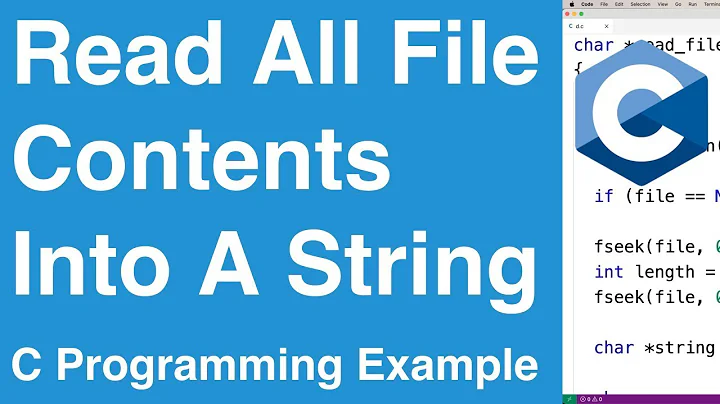Fastest way to put contents of Set<String> to a single String with words separated by a whitespace?
Solution 1
With commons/lang you can do this using StringUtils.join:
String str_1 = StringUtils.join(set_1, " ");
You can't really beat that for brevity.
Update:
Re-reading this answer, I would prefer the other answer regarding Guava's Joiner now. In fact, these days I don't go near apache commons.
Another Update:
Java 8 introduced the method String.join()
String joined = String.join(",", set);
While this isn't as flexible as the Guava version, it's handy when you don't have the Guava library on your classpath.
Solution 2
If you are using Java 8, you can use the native
String.join(CharSequence delimiter, Iterable<? extends CharSequence> elements)
method:
Returns a new
Stringcomposed of copies of theCharSequenceelements joined together with a copy of the specified delimiter. For example:Set<String> strings = new LinkedHashSet<>(); strings.add("Java"); strings.add("is"); strings.add("very"); strings.add("cool"); String message = String.join("-", strings); //message returned is: "Java-is-very-cool"
Set implements Iterable, so simply use:
String.join(" ", set_1);
Solution 3
As a counterpoint to Seanizer's commons-lang answer, if you're using Google's Guava Libraries (which I'd consider the 'successor' to commons-lang, in many ways), you'd use Joiner:
Joiner.on(" ").join(set_1);
with the advantage of a few helper methods to do things like:
Joiner.on(" ").skipNulls().join(set_1);
// If 2nd item was null, would produce "1, 3"
or
Joiner.on(" ").useForNull("<unknown>").join(set_1);
// If 2nd item was null, would produce "1, <unknown>, 3"
It also has support for appending direct to StringBuilders and Writers, and other such niceties.
Solution 4
Maybe a shorter solution:
public String test78 (Set<String> set) {
return set
.stream()
.collect(Collectors.joining(" "));
}
or
public String test77 (Set<String> set) {
return set
.stream()
.reduce("", (a,b)->(a + " " + b));
}
but native, definitely faster
public String test76 (Set<String> set) {
return String.join(" ", set);
}
Solution 5
I don't have the StringUtil library available (I have no choice over that) so using standard Java I came up with this ..
If you're confident that your set data won't include any commas or square brackets, you could use:
mySet.toString().replaceAll("\\[|\\]","").replaceAll(","," ");
A set of "a", "b", "c" converts via .toString() to string "[a,b,c]".
Then replace the extra punctuation as necesary.
Filth.
Related videos on Youtube
Comments
-
Lars Andren almost 4 years
I have a few
Set<String>s and want to transform each of these into a singleStringwhere each element of the originalSetis separated by a whitespace " ". A naive first approach is doing it like thisSet<String> set_1; Set<String> set_2; StringBuilder builder = new StringBuilder(); for (String str : set_1) { builder.append(str).append(" "); } this.string_1 = builder.toString(); builder = new StringBuilder(); for (String str : set_2) { builder.append(str).append(" "); } this.string_2 = builder.toString();Can anyone think of a faster, prettier or more efficient way to do this?
-
 mmx about 14 years
mmx about 14 years
-
-
Lars Andren about 14 yearsThanks for your answer! I didn't put it into a separate function to highlight the fact that I am trying to reuse the 'builder'-variable. Maybe that doesn't matter?
-
Gunslinger47 about 14 yearsIt doesn't matter. Repurposing variables can actually get you into trouble down the line. Instead, just have variables go out of scope when they're no longer needed.
-
Lars Andren about 14 years@Gunslinger, I see, thanks! @Uri, thanks for the initial capacity tips.
-
Uri about 14 years@Lars, there are cases where reuse makes sense but in others it is better to dump and start from scratch. I'm not sure what's better here. You could write a utility class that has an instance variable builder that is shared. One advantage for one-builder-per-run is that you could convert a large number of sets in parallel with multiple threads.
-
Shervin Asgari about 14 yearsWhat is the difference betweend guava-libraries and google collection library?
-
 Sean Patrick Floyd about 14 yearsthe main difference is that guava knows about generics and commons/collections doesn't, but apart from that: they are two different libraries written by two different teams that solve some similar problems (and some non-similar ones) using different approaches
Sean Patrick Floyd about 14 yearsthe main difference is that guava knows about generics and commons/collections doesn't, but apart from that: they are two different libraries written by two different teams that solve some similar problems (and some non-similar ones) using different approaches -
Cowan about 14 years@seanizer, Shervin was asking about guava vs google-collections, not guava vs commons :) Shervin - guava is simply the replacement for google-collections. As the project increased in scope, it stopped being limited to collections-only things so a name change was in order. google-collections should basically be considered deprecated, guava is a drop-in replacement with bug fixes + more features.
-
Kevin Bourrillion about 14 yearsbrief, but inflexible. I get "" substituted for null whether I want it or not, and don't have a skip nulls option... this is why we made Joiner for Guava (see other answer).
-
 Sean Patrick Floyd about 14 yearsI usually don't have nulls in my collections, so the brief approach is fine for me, but Guava rocks! Thanks for making that happen...
Sean Patrick Floyd about 14 yearsI usually don't have nulls in my collections, so the brief approach is fine for me, but Guava rocks! Thanks for making that happen... -
Kevin Bourrillion about 14 yearsSince you don't expect nulls, you'd like your joiner to blow up if you did have a null -- which is what Guava's Joiner does by default. :-)
-
Lars Andren about 9 yearsNice! Always cool to see what you can do with the JDK standard libs :)
-
 smp7d about 7 yearsThis one is null safe (when set is null) whereas the Guava approach is not
smp7d about 7 yearsThis one is null safe (when set is null) whereas the Guava approach is not -
 Sean Patrick Floyd about 7 years@smp7d nor should it be. Null is not valid input. Assuming it is would be dangerous. Rejecti null values with precondition checks and you'll never have to worry about null safety again
Sean Patrick Floyd about 7 years@smp7d nor should it be. Null is not valid input. Assuming it is would be dangerous. Rejecti null values with precondition checks and you'll never have to worry about null safety again -
 Sean Patrick Floyd over 6 years@java-addict301 Lots of little things, but the worst is the supposed null-safety everywhere. Read the Guava section explaining why that is a bad idea
Sean Patrick Floyd over 6 years@java-addict301 Lots of little things, but the worst is the supposed null-safety everywhere. Read the Guava section explaining why that is a bad idea -
 java-addict301 over 6 years@SeanPatrickFloyd Hmm, interesting looking read, thanks for the reference. I am very careful, intentional, and minimal with my use of null in general so perhaps I haven't noticed as much. Most importantly however, I always Always ALWAYS check values/parameters for null before use and throw an exception if they are, in almost all cases..
java-addict301 over 6 years@SeanPatrickFloyd Hmm, interesting looking read, thanks for the reference. I am very careful, intentional, and minimal with my use of null in general so perhaps I haven't noticed as much. Most importantly however, I always Always ALWAYS check values/parameters for null before use and throw an exception if they are, in almost all cases.. -
Lukas Novicky over 6 yearsclean, simple, not dependent on libraries hence not adding to app weight - love it!
-
Tedil almost 6 years... as long as you don't have any "[" or "]"s or ","s in your set, of course ;)
-
user2808054 almost 6 yearsI'd already mentioned the commas but you're right about [ and ] as well. Updated the answer.
-
 lewdev almost 4 yearsSome people are sadly without Java8+ and no easy access to libraries. Answers like this are super helpful for those people.
lewdev almost 4 yearsSome people are sadly without Java8+ and no easy access to libraries. Answers like this are super helpful for those people. -
 Mashukur Rahman over 3 yearsbe careful. if the toString is overridden it may do not work.
Mashukur Rahman over 3 yearsbe careful. if the toString is overridden it may do not work.















![#3 String- substring-spit string by spaces-compare strings [Dart for flutter]](https://i.ytimg.com/vi/B6hGpuIjc5U/hq720.jpg?sqp=-oaymwEcCNAFEJQDSFXyq4qpAw4IARUAAIhCGAFwAcABBg==&rs=AOn4CLDRhYifKv00u8JkkSuGHn6tjE3Hlg)
